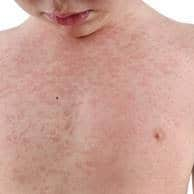Measles in Portsmouth: What are the symptoms and what should you do if you have it?
and live on Freeview channel 276
The national incident was declared after over 300 cases were confirmed between October 2023 and January 2024 in the West Midlands alone. Locally, Queen Alexandra Hospital cited the rising cases of measles and seasonal viruses as one of the reasons they announced a critical incident in January.
This development has left many people concerned about the safety of their children as they try to gain knowledge of the disease and how to spot it. Internet searches on measles symptoms have increased by 170 per cent over the past year. To help people find the information they need, here is a general look at what measles is and how to spot the symptoms.
What is measles?
Advertisement
Hide AdAdvertisement
Hide AdMeasles is spread through coughing, sneezing and close personal contact with infected people. It is a highly contagious disease and the virus can remain active and contagious in the air and on surfaces for up to two hours. It is most transmittable between infected people from four days after the rash appears until four days after the rash flares up.
What are the symptoms of measles?
High fever
Runny nose and cough
Red and watery eyes
Small white spots inside the cheeks
A whole-body rash - usually begins on the face and neck before spreading further
Navin Khosla, Pharmacist at NowPatient, provided further details regarding the symptoms of measles and who is most at risk. Navin said: "Unvaccinated children are most at risk of contracting the infection, as well as being the most vulnerable to the most extreme complications associated with the virus. Unvaccinated pregnant women and any unvaccinated or non-immune adults are also at risk of becoming infected. Symptoms of the virus don’t always appear until 10-12 days after exposure to the infection, therefore increasing the likelihood of individuals returning home from holiday or contact and spreading the virus further afield."


Navin added that best way to avoid getting the disease is by ensuring that yourself and your children have been fully vaccinated. They said: "There is no specific treatment for measles, with the MMR vaccination being the most effective method of avoiding the contraction of the infection. However, if you have measles you should remain hydrated, replacing any fluids lost; paracetamol and ibuprofen can also be taken to help ease the pain and fever.
"Any infections, such as eye and ear infections should be prescribed antibiotics, so be sure to seek advice from a medical professional if these occur. Vitamin A has been highly associated with reducing the number of measles-related deaths, with children being given two doses of the vitamin, 24 hours apart - this can help to reduce damage to eyes, and therefore decrease the risk of developing blindness from the infection. Nevertheless, isolating the infected individual from anyone at risk of contracting the virus is crucial in stopping the spread.”
Comment Guidelines
National World encourages reader discussion on our stories. User feedback, insights and back-and-forth exchanges add a rich layer of context to reporting. Please review our Community Guidelines before commenting.